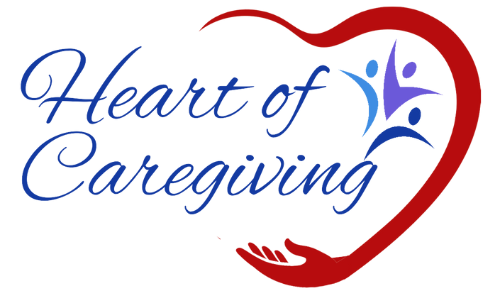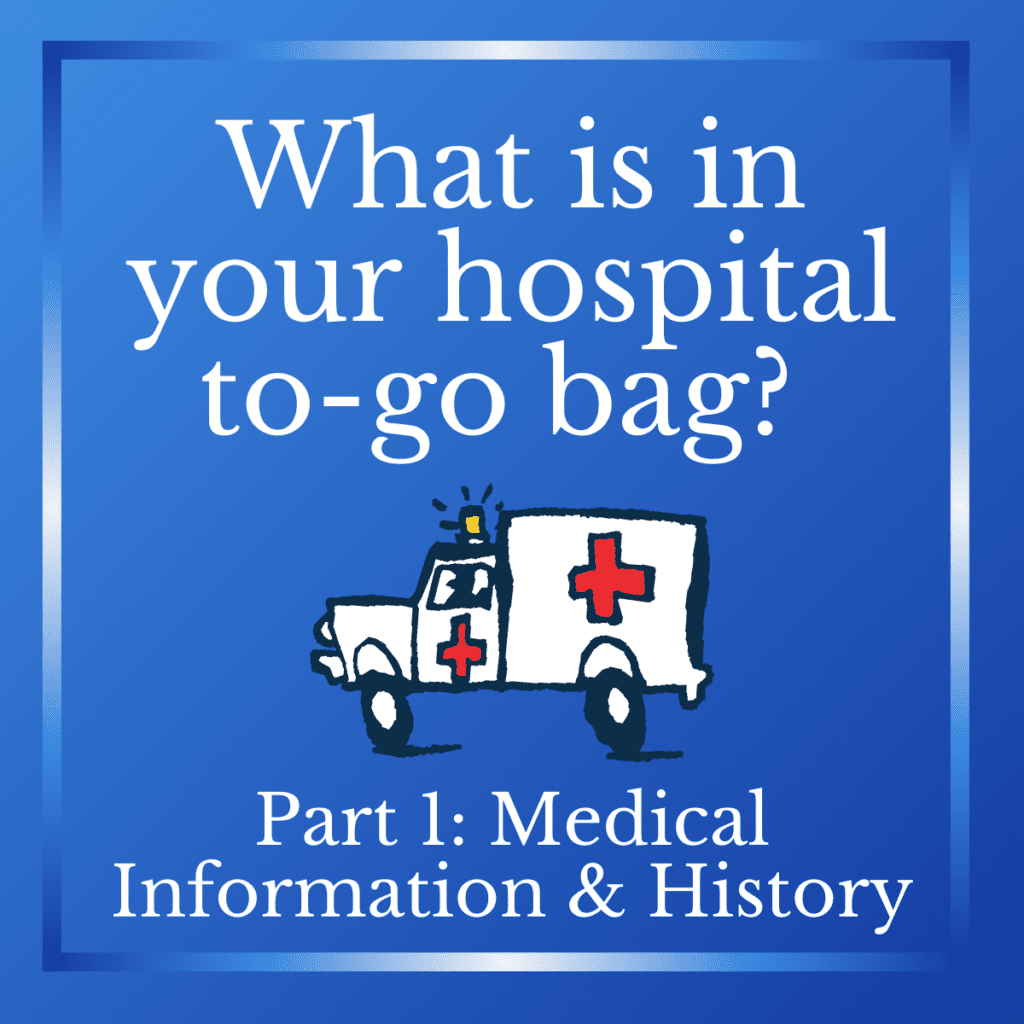Imagine you receive a call that your parent has been rushed to the hospital. As you arrive, the emergency room staff, relieved to see you, ask for crucial information your parent couldn’t provide. Would you feel prepared? Would you have their medical history readily available?
Gathering this information is far more manageable when we’re not in the midst of a crisis. Recording these details in a notebook or an online app allows you to swiftly share them during an emergency, giving you a sense of control and empowerment. This information is invaluable during emergencies and also aids in routine doctor’s visits.
Items to include in your ICE notebook:
- Family member’s identification
- Your contact information
- Primary Care Physicians’ name and contact information
- Other healthcare provider’s information
- Pharmacy address and phone number
- Medications list and allergies – include the medication name, dose, reason for taking, when taken, and the doctor who ordered it
- A list of hospitalizations and surgeries
- Copies of family members driver’s license, insurance information, health care surrogate legal documents, and Do Not Resuscitate order (DNR)
If you are the health care surrogate, do you have the login details to access the patient portal? It is good practice to review this information and verify its accuracy. If a healthcare surrogate has not been chosen and the documents prepared, an elder law attorney can help with the process.
Elder law attorney
Elder law attorneys can also help with a general POA and specialize in specific areas, so finding someone with experience with any particulars concerning your situation is helpful. A referral is always preferred. You can locate an elder law attorney in your area using the National Academy of Elder Law Attorneys (NAELA) website: https://www.naela.org/findlawyer.
The American Bar Association also provides a directory of attorneys specializing in elder law. Research and interview several attorneys before selecting one to work with. Before committing to an attorney, ask questions about their experience, qualifications, and fees. If you are 60 or older, you may qualify for free legal services through your local legal services program. You can find senior legal services at your local legal services program or by contacting your local Area Agency on Aging at eldercare.acl.gov.
While having this information is essential to supporting your family member in a crisis, they may be resistant to sharing details with you. If this is the case, learning where the documents are kept may be the first step in the process, as well as helpful information. You can revisit the subject later and gather the information over time. If you need help starting these conversations, The Conversation Project is an excellent resource for sensitive topics.
Additional reasons to gather this information before a crisis occurs:
Comprehensive understanding
You may have questions about the information you discover and can explore details about a diagnosis or family health history that will help you, your family member, and the care team make decisions. By exploring the details of a diagnosis, understanding family health history, and identifying potential underlying issues, gathering medical information before a crisis occurs equips you with the knowledge and confidence to make informed decisions that positively impact the health and well-being of your aging loved one.
Obtaining medical information beforehand allows you to seek clarification on any diagnoses or medical terms you may not fully understand. This empowers you to ask healthcare providers informed questions and gain a clearer understanding of the condition affecting your loved one. Sometimes, seemingly unrelated medical information can reveal underlying health issues or connections between symptoms. By thoroughly reviewing the gathered data, you may identify patterns or trends that could indicate the presence of an undiagnosed condition or potential complications. Addressing these issues preemptively can lead to earlier interventions and improved outcomes.
Armed with a comprehensive understanding of the aging family member’s medical history, you can actively participate in care planning and decision-making processes. You can weigh the benefits and risks of various treatment options, advocate for your loved one’s preferences and values, and collaborate more effectively with healthcare providers to develop personalized care plans tailored to their unique needs.
Advance planning
Advance care planning involves discussing and documenting the individual’s preferences regarding end-of-life care. This includes decisions about life-sustaining treatments, resuscitation preferences, and comfort care measures. By gathering medical information in advance, you can initiate these conversations early and ensure that your family member’s wishes are clearly understood and respected, even in the event of a medical crisis where they may not be able to communicate their preferences.
Gathering medical information in advance enables the family to engage in advance care planning discussions. This includes decisions about end-of-life care preferences, advance directives, and other important considerations. Having these conversations ahead of time can help ensure that the individual’s wishes are known and respected.
Advance planning discussions also encompass considerations related to quality of life, including personal values, beliefs, and goals for care. By proactively engaging in these discussions, you can gain insight into your loved one’s priorities and preferences for their care, allowing them to make decisions that prioritize comfort, dignity, and quality of life, even during a medical crisis.
Reduce stress and family conflict
Gathering medical information in times of crisis or urgency can add unnecessary stress and complexity to an already challenging situation. By proactively collecting this information, you can alleviate some of the burden during a crisis and focus on supporting and caring for your loved one.
Since medical emergencies can be emotionally charged situations, differing opinions among family members about the appropriate course of action can lead to conflict and tension. Communication and preparation allows family members to address potential areas of disagreement in advance and establish a clear plan of action based on the older adult’s expressed wishes. This can help reduce stress and conflict during a crisis and ensure that decisions are made in the best interest of the loved one.
For more on gathering essential medical information and other solutions for caregivers’ common mistakes, check out 21 Mistakes Caregivers Make & How to Avoid Them: Solutions and Strategies to Reduce Stress and Increase Happiness, available on Amazon! Are you looking for a dynamic speaker on caregiver empowerment? Go to my speaking page, and let’s connect!
The advice offered is for general information only; please consult your healthcare team, legal, or financial advisors for guidance.


